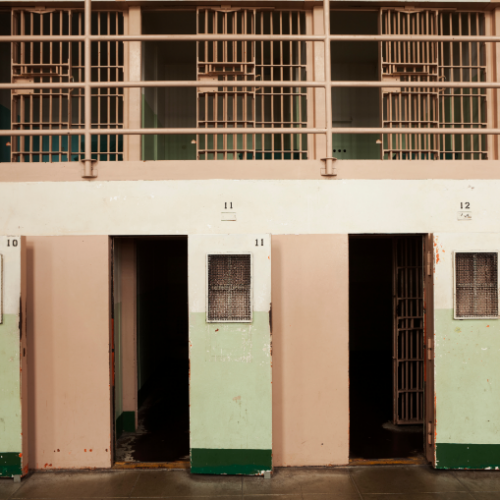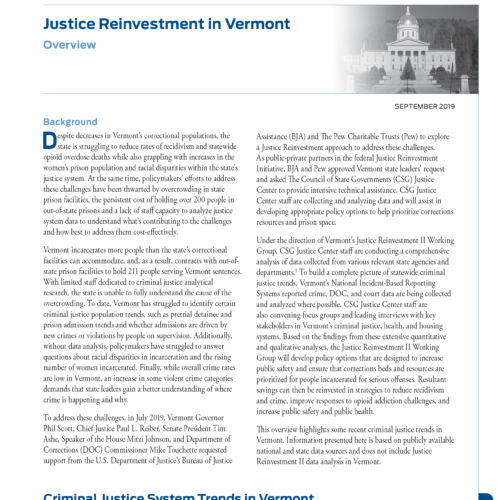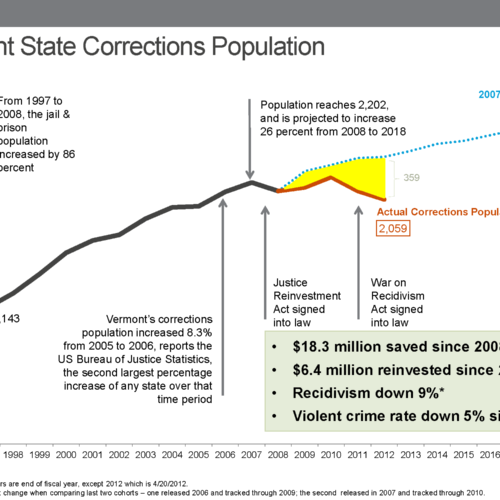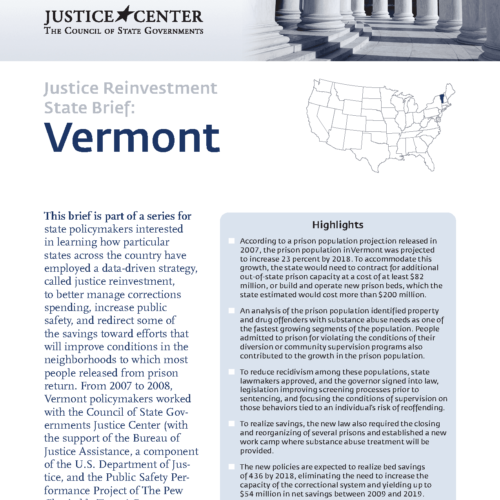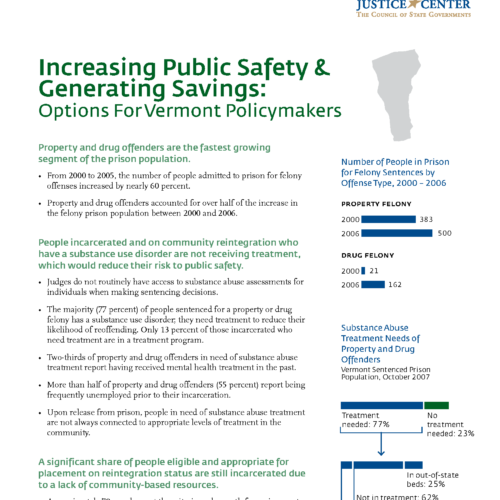Justice Reinvestment in Vermont
JRI 2007–2008
Between 2007 and 2008, Vermont first used a data-driven Justice Reinvestment approach to address the state’s rising prison population, reduce corrections spending, and reinvest savings in strategies to improve public safety. As a result of this effort, Vermont passed Justice Reinvestment legislation in 2008, which improved screening and assessment for behavioral health treatment needs, increased access to community-based substance addiction treatment programs, focused supervision resources on people most likely to reoffend, and expanded transitional housing opportunities and job training programs.
The Problem
Following Vermont’s first JRI effort, the prison population fell 16 percent, and the state was able to reinvest an estimated $6.3 million in correctional supports and services. Despite these successes, however, there were a number of key issues that the state continued to grapple with. Vermont prison facilities were still operating at 138 percent above their design capacity. The state also struggled to identify certain key data, including how many people on probation were revoked to jail or prison, what types of violations people were revoked for, and their length of stay when they returned. Finally, the state’s drug overdose death rate increased 115 percent—from 10.8 deaths per 100,000 residents to 23.2 deaths—between 2007 and 2017, which indicated a need for behavioral health treatment and other social supports.
How JRI Helped
To build on prior efforts and address these challenges, state leaders again embarked on a Justice Reinvestment approach in the summer of 2019 with intensive technical assistance from the CSG Justice Center and support from The Pew Charitable Trusts and the U.S. Department of Justice’s Bureau of Justice Assistance.
As a result of the Justice Reinvestment Initiative, Governor Phil Scott signed a bipartisan criminal justice bill in July 2020—S.338—aimed at reducing Vermont’s high recidivism rates by restructuring the state’s approach to community supervision, while also launching a focused effort to examine racial disparities in sentencing and in Vermont’s prisons. S.338 created a system of presumptive parole, streamlined the furlough system, and required reporting related to demographics and sentencing, among other measures.
During the implementation of Vermont’s Justice Reinvestment legislation, state stakeholders requested further study of the racial disparities identified during the policy development process. In response, CSG Justice Center staff conducted an in-depth analysis of sentencing data to investigate patterns of racial disparity over time and identify the potential drivers behind them. The findings and policy recommendations resulting from this analysis can be found here.











